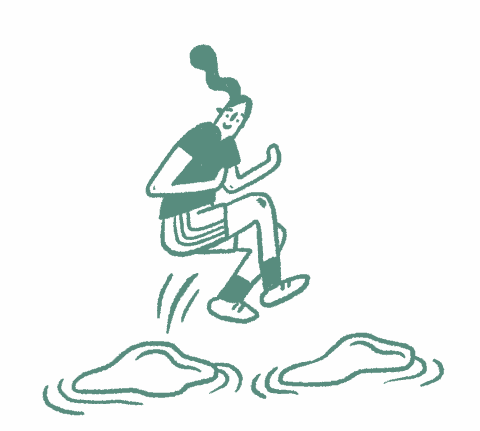September has arrived and so has the annual wave of academic and personal pressures. Whether you are a bright-eyed, fresh-faced freshman or a tired and weary fifth-year slogging through a few final courses — the road to a degree is a similar path for many.
The undergraduate highway leading towards a bachelor’s degree is long and arduous, with many of us making up the route as we travel along it. While there are some among us who have known what they wanted to do long before their adult teeth pushed through, the rest of us fumble our way towards an answer, with some still struggling to unearth their career goals.
For those of us that who haven’t quite figured it out yet, working towards a degree of convenience becomes appealing. A degree of convenience is something that you consider to be a safe degree, something you know that you can accomplish or perhaps just something that will pay the bills. It’s something practical that you can feign an interest in long enough to get that piece of paper.
If you take that route, you may one day find yourself face down in the sand from the sudden realization that you have wasted years of your life hemorrhaging thousands of dollars in student loans. If this moment comes to you, don’t panic — this is the perfect time to alter your course.
I have done that three times now, and I don’t regret finding the courage to pursue multiple paths. Each route was necessary because they have all led me to what finally fits. I can also confidently say that I have accumulated only precious knowledge along the way. Ok, I have also accumulated some debt, but knowledge is a much better focal point.
From fumbling at an arts degree to doing what every good Prairie girl does — applying to nursing school — I have had my share of trying out different educational pursuits. Despite some turmoil, there was nothing wasted about taking the scenic route. It provided me with the knowledge and experiences that have finally led me to my current academic pursuits.
I eventually left the College of Nursing after my third year — meaning I was 80 per cent finished my course requirements. I quit, but I didn’t run away. Instead, I took a deep dive into the world of science — by testing the waters with some biomedical science courses last year, before settling into physiology and pharmacology.
It may have taken three attempts, but I have finally found my niche, and it is something I would have pursued from the beginning if I hadn’t been dissuaded by the perception of the standard science professional.
Growing up, I was under the impression that science was for the intellectual elite. That it was a profession for math geniuses and those remarkable people able to make impossible connections with their oversized prefrontal cortexes.
I was terrible at math and thought a science-focused education was out of my reach — despite my curiosity and passion for the subject. But it also appears that women who are highly skilled in math are still not pursuing science-based degrees.
Statistics Canada reported that women with high math scores were less likely to attend a STEM program compared to lower-scoring male counterparts. Even out of the students confident in their math abilities, only 15 percent of women entered into STEM programs compared to a reported 36 percent of males.
In recent years, there has been a focus on getting young girls and women interested in STEM to increase the number of women in the field. The reality is that we are already interested, and even passionate about it, but we are often deterred from pursuing a science-based education and choose not to pursue STEM careers as a result.
Now that I am focusing on science, I have met incredible mentors, engaged with interesting people and immersed myself in challenging and rewarding classes. I’ve taken risks and encountered more opportunities than I had in all my previous years of academia combined.
If you are dissatisfied and questioning your life choices, you might want to pay attention to that nagging voice. It is never too late to make a change and go after what you’re really passionate about. Though change doesn’t come without consequences — failure is real and so is hefty student debt — you have no idea what kind of opportunities lie just ahead.
—
Erin Matthews / Opinions Editor
Graphic: Jaymie Stachyruk / Graphics Editor
Leave a Reply